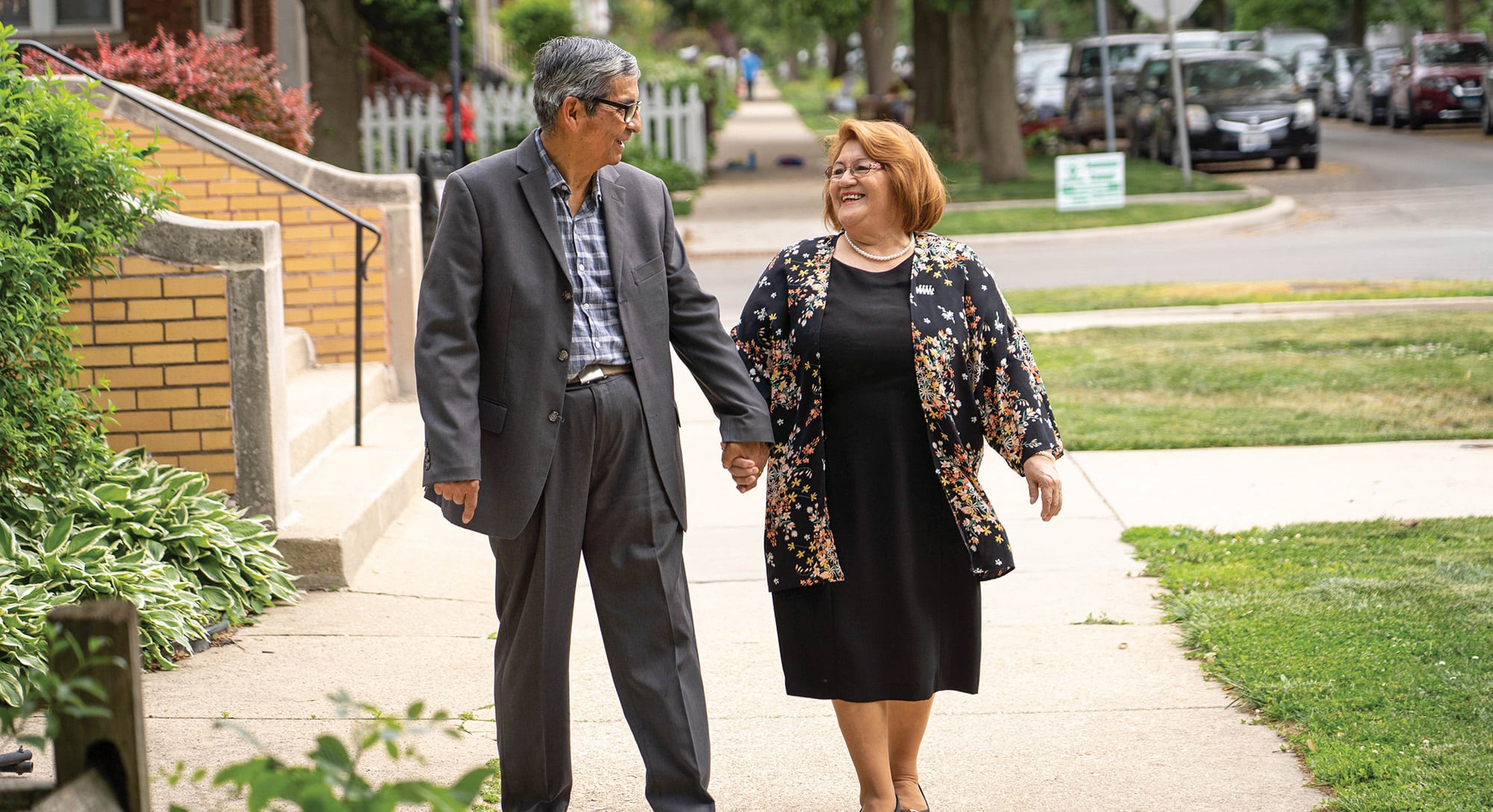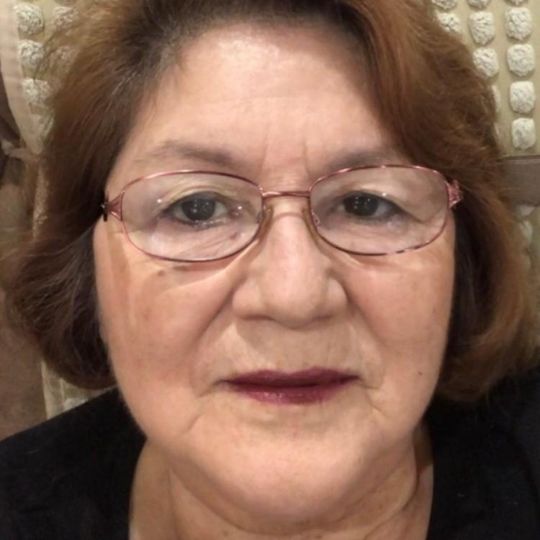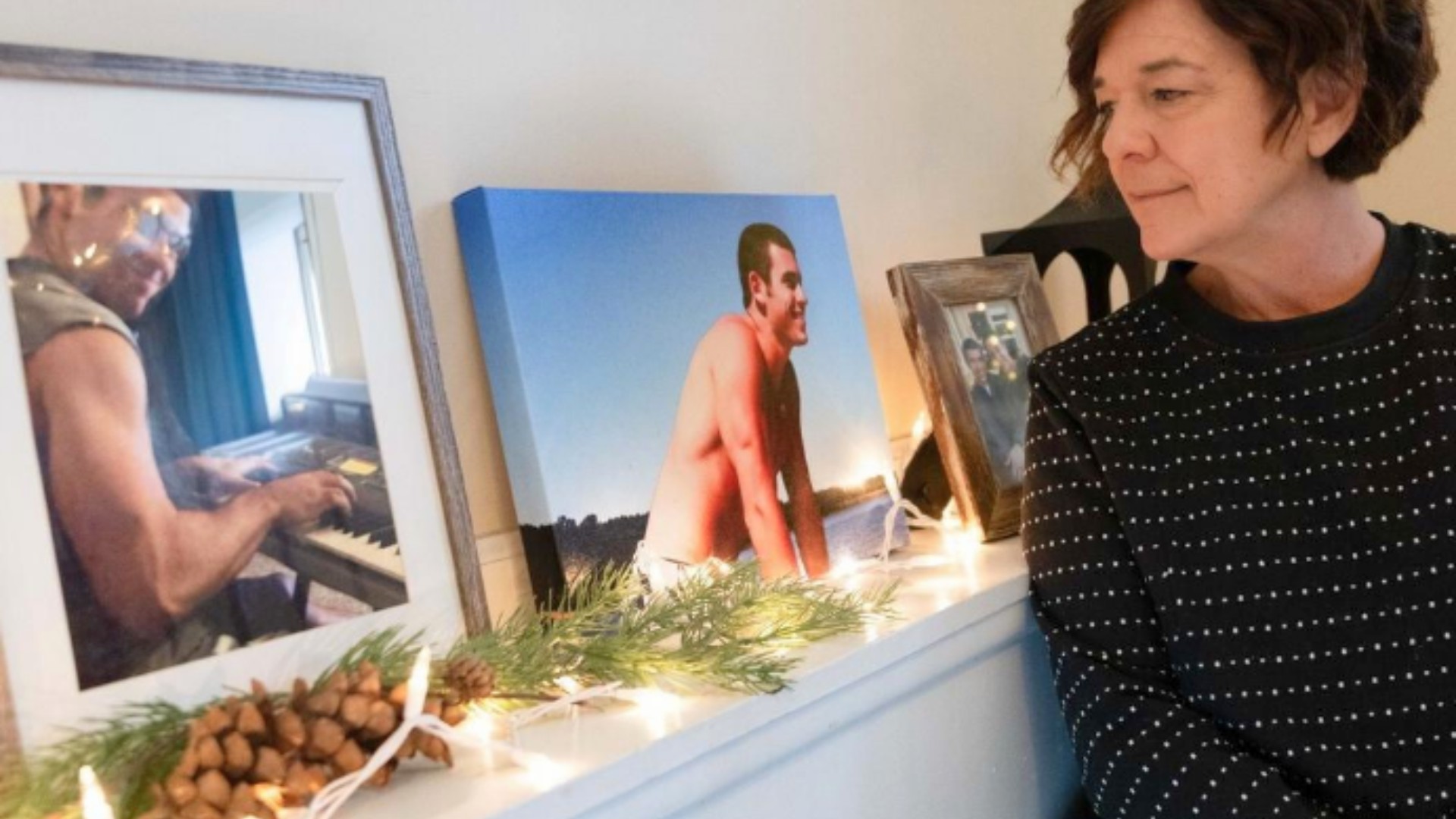From the Coup in Chile to Church Planting in the Covenant
I grew up in Puerto Montt, Chile, in a neighborhood where everybody knew each other. My parents were teenagers when they married, and they worked in the fields picking potatoes and other vegetables. After I was born, we moved from the countryside to the city.
My father sold fruit and vegetables—first from a handheld basket, then from a little produce cart pulled by a horse. By the time I was six years old, my parents had saved enough money to open a small neighborhood market.
Sometimes my father would take me with him to deliver vegetables to the nuns at a boarding school for children without parents several blocks from our home. My parents were determined that my siblings and I would have the education they did not have, so my father asked the nuns if I could attend their school. He wanted me to be a teacher.
I went to the boarding school until sixth grade, then started public school in order to fulfill the requirements for escola normal (normal school), which prepares students to become teachers.
Ever since I was a teenager, I think I knew God wanted to use me. God has given me the gift of leadership and I began using that gift early to serve in the church—I led a children’s choir and was part of the renewal movement of the Catholic church in the ’60s.
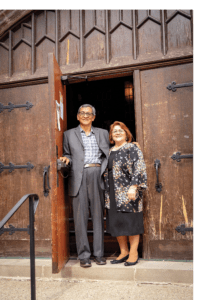
I met my husband, Luis, in a political meeting at school. He was the president of the student body at Universidad Tecnica del Estado, and we were both involved in politics, supporting one of the candidates running for president of Chile. I graduated in 1966 and began my teaching career as an elementary teacher. Teaching came naturally to me, and I have taught both in public schools and in the church. I continued teaching after we got married in 1971 and after the birth of our first child.
On September 11, 1973, Chile’s president, Salvador Allende, was overthrown in a military coup led by army general Augusto Pinochet. The new regime began to imprison and execute anyone connected to the former government. Since my husband had been the president of the student body at the university, he was taken prisoner on September 12. He was in custody for a week and then returned home.
On October 4, he was taken again.
Soldiers came to our house with machine guns looking for Luis and started to break everything. I was at home with our 17-month-old daughter, Patricia, who witnessed the whole incident. My husband was not home at the time, but the next day he gave himself up. He thought they would interrogate him again and send him home.
But that didn’t happen. The new government formed a group called the terror caravan that started in the north of Chile and began killing the leaders in each province’s capital. My husband was supposed to die on October 17, 1973. They got to the province just north of ours and the killing stopped.
Luis spent 194 days in isolation. He was held in the dark in the dungeon. During the nearly three years that he was in prison, he slept on a floor covered with hay. If he had to go to the necessity, he used the hay, which was cleaned out daily. The prison did not provide food, so families were responsible for feeding their loved ones. Every week I left a basket for Luis in front of the prison gates, and the guards took it back to him.
When my husband was taken prisoner, my daughter was a toddler, and I was six months pregnant. A group of evangelical Christian women had seen the commotion at our house and came to comfort me the next day. One was my aunt on my father’s side, but I didn’t know any of the other people. They came and prayed for me and told me Jesus would listen to my prayers. They had such a great faith. That day I gave myself to Jesus.
Even though I was new to the church, they sustained me. The church was not big—40 people. (Now it has 1,000 members.) When Luis had to go to court, people from my church came to pray with me at 6 o’clock in the morning. They fasted with me. All the time they were with me.
On Sundays when I would take Luis’s food to the prison, my brothers and sisters from church would bring an apple, a banana, a magazine. I added clean clothes. We put it all in a tall, round basket, and the whole church prayed over it. All the children I taught in Sunday school laid hands on that basket and prayed for Luis’s life. Everything that our ministry has become since then has been a reflection of our experience in those days.
God spoke directly to my heart, “This is for you.”
Luis had been raised in the church, but by the time he was 13 years old, he had decided not to go to church anymore. When he was in solitary confinement, he was given a Gideon Bible, a New Testament. As he read that New Testament, his faith returned and he decided to believe in God again.
For three years I did everything I could to get my husband out of prison. I made three trips to Santiago, the capital city 700 miles from my home, to file petitions for exile. And I waited.
When the coup first began, an international bank had frozen Chile’s assets. After two years, the bank began to use these funds to negotiate for the liberation of political prisoners like Luis. I continued to fill out papers, mostly for exile in countries across Europe. There were very few openings and I was uncertain about the role the U.S. had played in the coup, but I did fill out the papers for the United States and let it go.
During this time, an architect from Boston who had been in Chile studying for his master’s degree at the same university as Luis learned what was happening to the people of Chile. He discovered Luis’s name on the list of political prisoners, and he began to file paperwork with the U.S. Department of State for Luis’s protection.
One day I saw a limousine with the flag of the United States outside the prison. When I saw the limo, God spoke directly to my heart, “This is for you.” I didn’t know what was happening inside, but when I went to the door to deliver my basket, the guard told me, “Your husband is being interviewed.” Soon after that, Luis received a refugee visa.
In order to enter the United States, we needed a sponsor. Solel Synagogue in Highland Park, Illinois, had heard about the violence in Chile and was moved to sponsor a family. They did not know us at all. When they got to our name on the list of names and family histories of people seeking asylum, they circled it and said they are for us. God talked to the hearts of those people. Luis and I arrived in Chicago with our two daughters in June 1976.
Someone from the synagogue owned the Belle Shore Hotel on Bryn Mawr Avenue. We stayed there in a studio apartment for a couple months. Then the congregation paid one year’s rent for us to get an apartment. They gave us clothes and everything we needed. Someone from the synagogue gave Luis a job at a factory where he worked for 13 years. We felt like God had opened the windows and doors of heaven and was pouring blessings on us.
During our first year in the States, the synagogue paid for the preschool/daycare center for our daughters. I took English classes through a city program from August to February and received $120 a week to cover my travel and food. Then I got a job as an assistant in my children’s daycare. National Lewis University had a special program that allowed me to take the education classes I hadn’t already taken in South America, and my teaching degree was validated in 1978. God has been so good.
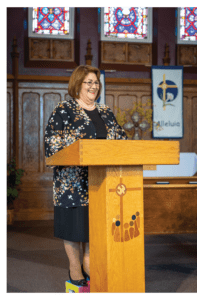 Our apartment was two blocks away from Edgewater Covenant Church (now La Iglesia del Pacto Evangelico Belen). We noticed a sign for free English classes in the church window. Two students from North Park College knew some Spanish and they came out to talk to us. They told us that a young pastor, Keith Tungseth, was beginning a Bible study in Spanish. Later that day he visited our house to meet us and talk with us. He cried with us when we told him our story. He is still our good friend. That was the beginning of our life in the Covenant.
Our apartment was two blocks away from Edgewater Covenant Church (now La Iglesia del Pacto Evangelico Belen). We noticed a sign for free English classes in the church window. Two students from North Park College knew some Spanish and they came out to talk to us. They told us that a young pastor, Keith Tungseth, was beginning a Bible study in Spanish. Later that day he visited our house to meet us and talk with us. He cried with us when we told him our story. He is still our good friend. That was the beginning of our life in the Covenant.
Edgewater was a big church, but they had no Hispanic ministry. So we helped start one. My husband was in the beginning stages of his Christian faith and I played the guitar.
In 1983, a Covenant church in Schaumburg needed help planting a Spanish-speaking congregation. Three days a week we traveled 25 miles out to Schaumburg to play guitar and help with Sunday school at what is now La Iglesia del Pacto Evangelico Renacer, Carpentersville.
Luis started attending North Park Theological Seminary and met Jerry Reed who had recently retired with his wife, Nancy, from serving in Mexico as Covenant global personnel. We started a Bible study at home, and the Reeds invited us to meet with them for a Bible study with Grace Covenant Church. I loved my church in Schaumburg, but I realized we needed to be at Grace.
While Luis was still in his first class in seminary, people started to call him “pastor” even though he was really a lay leader. We started La Iglesia del Pacto Evangelico Grace. When it had grown to 80-100 members, my husband envisioned a church plant in a neighborhood south of us. We trained a group of people from our church—musicians, leaders, Sunday school teachers. They started La Iglesia del Pacto Evangelico Peniel.
Through all the years of our ministry, I had always wanted a seminary degree. I was a student at Centro Hispano de Estudios Teológicos (CHET), but I was not able to finish the program because I was busy in my career as a teacher and we were raising three children by that time. When I retired from teaching in 2015, I said, “This is the year.” I wrote to Ed Delgado, who was president of CHET. He encouraged me to move forward. I collected my resume to see what classes I had already taken and started the process.
My mother had come to live with us in 1986. By 2014, she had begun to show signs that she was progressively losing her memory. As her need for care increased to 24 hours a day, I had to set my studies aside. She lived with us until the day she passed away in 2019. When the pandemic hit in 2020, I discovered I had the time.
So I contacted CHET again. They acknowledged my previous classes and ministry work. I had already taught many of the classes I needed to take so I received exemptions from those classes. Most pastors get their education and then pursue their ordination. I am doing it all backward.
I have spent many years in ministry alongside my husband. Now Luis is retired from being a pastor, and we are members of La Iglesia del Pacto Grace. I am currently serving as interim pastor at Iglesia International Cristiana Sobre La Roca. Because of the pandemic, the church has asked me to stay longer than originally planned. I lead Zoom Bible study and prayer. On Sundays a group meets at the church and I preach from home.
While my pathway to ordination may not be typical, it feels like the culmination of my work in the Covenant. So many times I have said I am going to do it, and now I really am going to do it.


